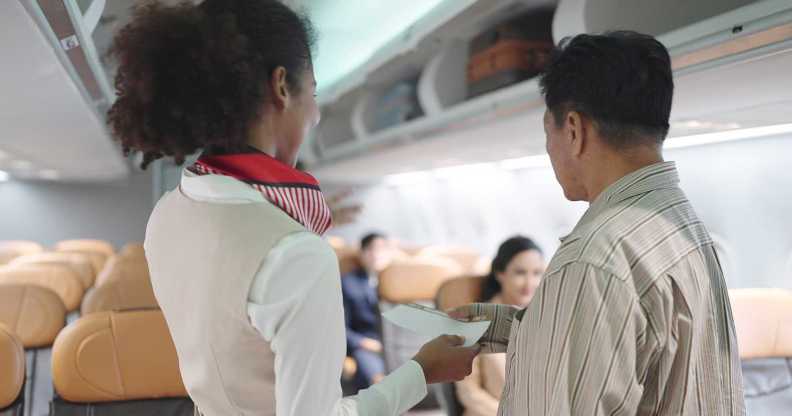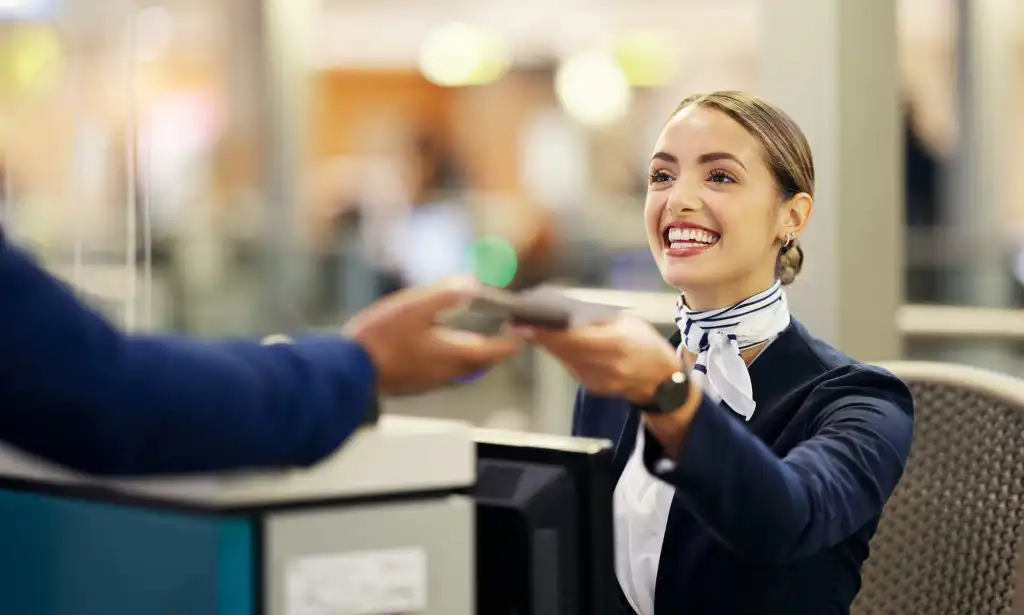Air travel and entertainment job industries boast highest LGB+ representation, data shows

Air travel and entertainment job industries are most likely to boast higher levels of LGB+ employees. (Getty Images)
Census data has shown that the air travel, entertainment, and theme park job industries boast the highest levels of LGB+ representation in the UK.
Figures from the 2021 England and Wales census, published by the Office for National Statistics (ONS), found that LGB+ people aged 16 and over were most likely to work in one of these three job industries.
The census, which was the first of its kind to ask employees about their sexual orientation, found that at least one in ten people who worked in any of these industries identified as gay, lesbian, bisexual, or another minority sexual orientation.

Other popular jobs near the top of the list included coffee shop workers (10.8 per cent), artists (9.8 per cent), bar staff (9.4 per cent), writers (8.9 per cent), and arts producers or directors (9.3 per cent), according to an analysis of data by PA news agency.
At the top of the list were air travel assistants, with 13.7 per cent identifying as LGB+.
Commenting on this finding, a spokesperson for the international Association of Flight Attendants said that the airline industry allows people to “live and work as their authentic selves.”
They said: “Many people who identify as LGBTQ+ today work as flight attendants to be surrounded and supported by peers.
“Decades before the law caught up, we worked together to negotiate job protections for LGBTQ+ workers and secured domestic partner benefits in contracts. Our solidarity has allowed thousands of flight attendants to live and work as their authentic selves.”
Meanwhile, the jobs with the fewest employees identifying as LGB+ included window cleaners (0.7 per cent), bricklayers (0.6 per cent), scaffolders (0.6 per cent), and farmers (0.6 per cent), representing less than one in 100.

Commenting on this finding, the president of Britain’s National Farmers’ Union Minette Batters said that the farming industry was “an incredibly vibrant sector, with people from different backgrounds and experiences.”
She added: “We want everybody to feel welcomed and valued, which is why we’ve partnered with Agrespect and pledged to stand against prejudice and support rural LGBTQ+ diversity, inclusion and enablement.”
While, across every occupation, there was a small percentage of people who opted not to disclose their sexual orientation, the Chartered Institute of Personnel and Development (CIPD) noted that these figures were a sign for employers to “act now to improve equality, diversity, and inclusion at work.”
A lack of LGB+ representation in an industry can come down to a number of causes, ranging from cultures of discrimination or social exclusion to barriers to entry or progression.
CIPD diversity and inclusion policy adviser Jill Miller told the news agency that their own research had shown a “significant number of LGB+ employees experience harassment and discrimination in the workplace.”
The group’s 2022 research also found that employers in public or voluntary sectors were “significantly more likely” than employers in the private sector to say that they had focused on queer diversity and inclusion in the past five years.
“Attracting a more diverse workforce through reaching out to a diverse talent pool is important, but organisations must go further,” said Miller.
“Employers need to focus on creating an inclusive organisation culture where there is equality of opportunity and outcomes for all.”
How did this story make you feel?

